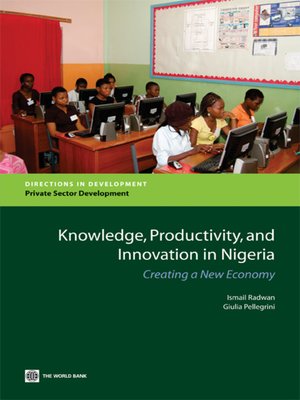Knowledge, Productivity, and Innovation in Nigeria
ebook ∣ Creating a New Economy · Directions in Development
By Ismail Radwan

Sign up to save your library
With an OverDrive account, you can save your favorite libraries for at-a-glance information about availability. Find out more about OverDrive accounts.
Find this title in Libby, the library reading app by OverDrive.



Search for a digital library with this title
Title found at these libraries:
| Library Name | Distance |
|---|---|
| Loading... |
Nigeria has a bold national vision of becoming one of the worldâs top 20 economies by 2020. However, despite being the 8th most populous country in the world, it ranks 41st in terms of GDP and 161st in terms of GDP per capita. Nigeria has long depended on oil for its exports and government revenues. This dependence has led to rent seeking and a reluctance to examine potential avenues for economic diversification. The authors of 'Knowledge, Productivity, and Innovation in Nigeria' believe that the goal of becoming a top-twenty economy can only be achieved if Nigeria makes the transition to a new economy rooted in the 21st century that harnesses the power of knowledge and avoids a static oil-based growth strategy. Knowledge has always been central to development, but new technologies have made it globally accessible. Countries such as the Republic of South Korea, India, and the United States that have exploited new technologies and know-how have pushed their innovation and productivity frontiers. Countries that have failed to do so risk remaining mired in poverty. In order to achieve Vision 2020, Nigeria must move beyond the stop-start patterns of oil-based development that have characterized it since independence. It must create a stable and prosperous economy based on a critical mass of knowledge workers. Knowledge, Productivity, and Innovation in Nigeria examines how Nigeria can prepare for this century and where its leaders can focus to achieve their vision, presenting the experiences of other countries from which Nigeria can learn.







